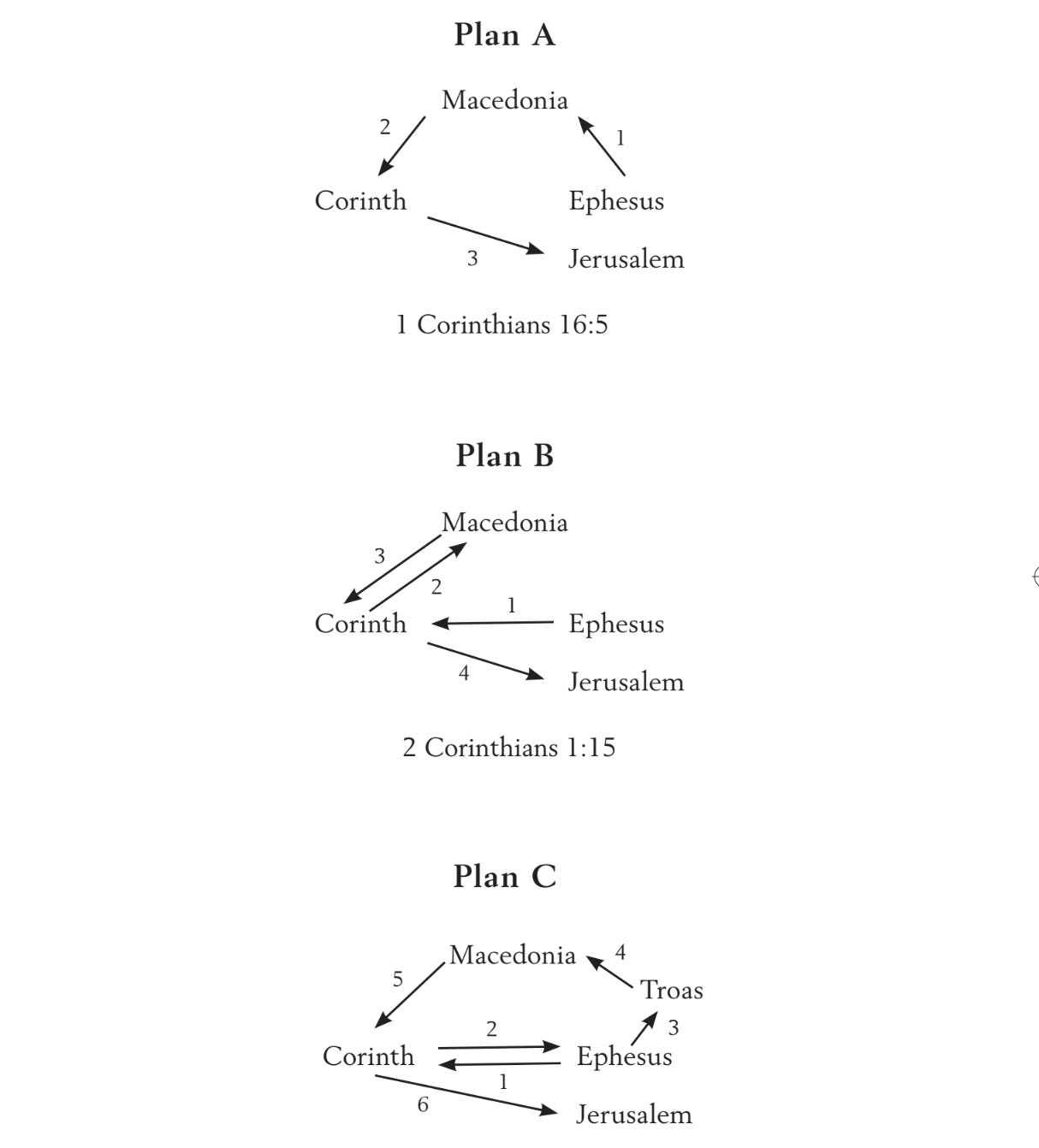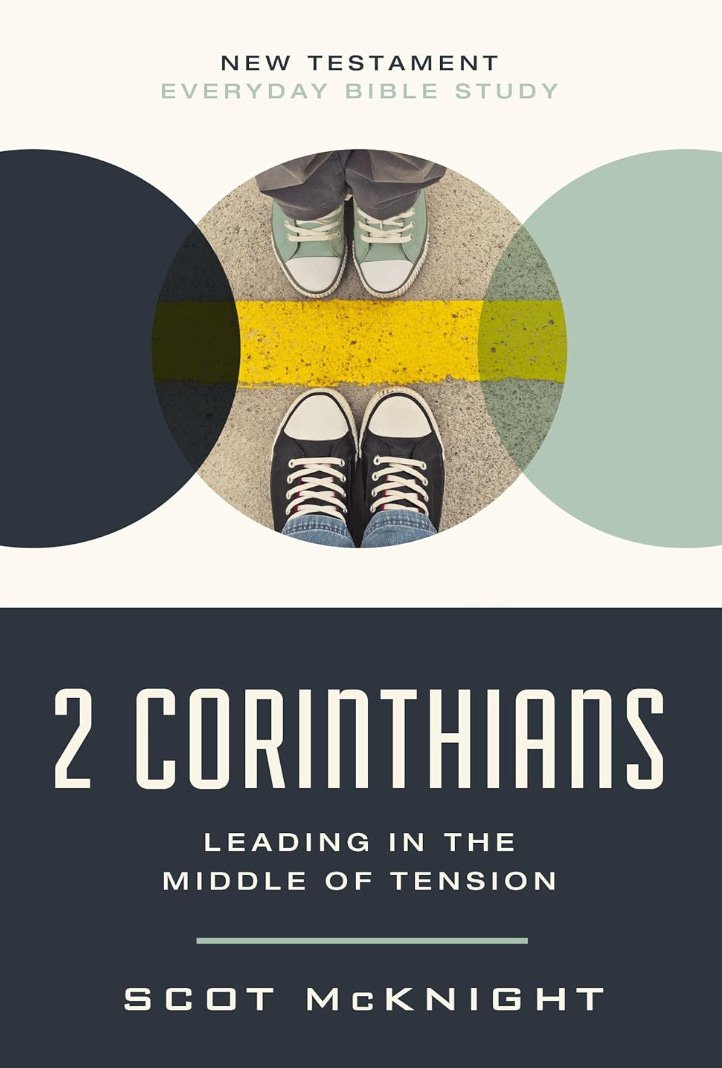
From 2 Corinthians in the Everyday Bible Studies series. Questions are by Becky Castle Miller.
2 Corinthians 1:12-22
12 Now this is our boast: Our conscience testifies that we have conducted ourselves in the world, and especially in our relations with you, with integrity and godly sincerity. We have done so, relying not on worldly wisdom but on God’s grace. 13 For we do not write you anything you cannot read or understand. And I hope that, 14 as you have understood us in part, you will come to understand fully that you can boast of us just as we will boast of you in the day of the Lord Jesus.
15 Because I was confident of this, I wanted to visit you first so that you might benefit twice. 16 I wanted to visit you on my way to Macedonia and to come back to you from Macedonia, and then to have you send me on my way to Judea. 17 Was I fickle when I intended to do this? Or do I make my plans in a worldly manner so that in the same breath I say both “Yes, yes” and “No, no”?
18 But as surely as God is faithful, our message to you is not “Yes” and “No.” 19 For the Son of God, Jesus Christ, who was preached among you by us—by me and Silas and Timothy—was not “Yes” and “No,” but in him it has always been “Yes.” 20 For no matter how many promises God has made, they are “Yes” in Christ. And so through him the “Amen” is spoken by us to the glory of God. 21 Now it is God who makes both us and you stand firm in Christ. He anointed us, 22 set his seal of ownership on us, and put his Spirit in our hearts as a deposit, guaranteeing what is to come.
Good leaders are good planners. But good planners adjust their plans. People looking for weaknesses, in even a good leader, will point out inconsistencies in plans or in the execution of a plan. Divisive people will pitch a tent on the leader’s adjustments and pound long nails into the ground to fix their complaints. Today’s reading details one complaint of some folks in Corinth and Paul’s response. Since Paul’s explanation in 1:12-16 assumes the complaint, which does not appear until 1:17, we begin with the complaint. But the overall strategy for Paul was both to defend himself and even more to show that his plans and their execution were shaped by keeping first things first. When in the middle of relational tensions and accusation, we easily forget to keep first things first.
Accusation
We can begin then with the problem presented by Paul’s critics. The accusation, Paul is fickle, arose because he adjusted his plans (1:17). Did he have to adjust, or did he make light of some previously announced travel plan? I suggest we give the Corinthians at least our ears. From the New Testament we find three sets of plans in Paul’s travel plans from Ephesus to Corinth. In this map of plans M = Macedonia, C = Corinth, E = Ephesus, Jer = Jerusalem, and T = Troas.
In Plan A, which is clear in 1 Corinthians 16:5 (below), Paul plans to travel from Ephesus to Macedonia, then down to Corinth and off to Jerusalem for the feast and delivery of the collection for the poor.
1Cor. 16:5 After I go through Macedonia, I will come to you—for I will be going through Macedonia.
Plan B changes Plan A and can be seen in 2 Corinthians 1:15. Instead of going north from Ephesus up to Macedonia (Plan A), Paul changed his mind (Plan B) and decided to come to Corinth first. He would then go north to Macedonia and back to Corinth before his departure to Jerusalem (thus, Plan B).
2Cor. 1:15 Because I was confident of this, I wanted to visit you [Corinthians] first so that you might benefit twice.
But instead of Plan A or Plan B as stated above, Plan C mixes and matches. Paul began with Plan B by first crossing the Aegean Sea to Corinth. But instead of going north to Macedonia, he returned to Ephesus (contrary to Plan B). Then from Ephesus he returned to Plan A, adding time in Troas. So, he accomplished both of his plans! Not so, thought some Corinthians.
In verse twenty-three Paul, no kidding, frames a non-existent Plan D. Plan C routed a trip from Ephesus to Corinth, Corinth back to Ephesus, and then north. Plan D added yet another trip to Corinth from Ephesus after Plan C’s return to Ephesus. In 1:23 he says he did not return to Corinth “in order to spare you”!
Fickle? Perhaps. Flexible? At least. But not fickle, according to Paul, for the one who surrendered plans to the Spirit. A flexible approach to plans appears in 1 Corinthians 16:5-7, with its “Perhaps” and “for a while” and “wherever I go” and “I hope to spend some time with you” and “if the Lord permits.” Perhaps he was a bit fickle in his plans so he offers an explanation. Plans are not as important to Paul as the Spirit’s guidance.
Explanation
We start with a ground level human reality. We have all been in situations in which one person’s explanation seems entirely reasonable to them while our differing explanation is entirely reasonable to us. Welcome to Paul and the Corinthians in today’s passage. The Corinthians think Paul is fickle; Paul thinks he’s a straight arrow. Paul believes his conscience about relations in this world is clean. Even more so with the Corinthians. He examined himself and discovered “integrity and godly sincerity” (1:12; Second Testament has “with God’s generosity and transparency”). In 1:15 he writes that he is persuaded of his own self-perception. He did not operate with “fleshy wisdom” (Second Testament; 1:12 and 1:17) but acted “on God’s grace.” His present letter confirms what he wrote before, which means he has not been fickle in communications (1:13). He believes they should both be co-boasting: they in him, and he in them (1:14). His conscience is clear enough that he felt good not only to visit them but to visit twice (1:15-16). Paul thinks he’s free of fickleness.
Though Paul’s words are self-defensive, a charitable reading requires that we trust him when he says he examined his own conscience. We know some people appeal to their clean conscience when we think it ought not to be, but such self-examinations and their descriptions are subjective matters. Paul believed he was not fickle in plans or communications. More importantly, he has an entirely different way of framing his plans and back-and-forths with the Corinthians. His approach, which takes a reader a bit by surprise, is to appeal to first things first.
First things first
In the middle of a committee or board and group discussion someone can utter or just mutter something like this: Why are we even here? What is our mission? What matters most? With the follow up: We need to look at this specific decision in light of the gospel and our gospel mission. Sometimes this changes everything. With the mission in view, previous discussions go away, new plans are formulated, and a clear direction is mapped.
The fickle-accusation is that Paul’s Yes is not a Yes but a No, and his No is not a No but a Yes (1:17). In response, Paul shifts gears, speed, and lanes at the same time. Without even looking at the mirrors. He shifts from his necessary travel plan adaptations to the utter consistency of his “message” (1:18; “word” in Second Testament). Let’s just say it: consistency of message does not mean plans are consistent. So be it, Paul’s in a new lane. A lane where what happens to the gospel is more important than his plans. He adjusted his plans according to the gospel mission’s needs.
He grounds his first things first gospel message in God remaining allegiant to his promise. Paul’s message has singularly and faithfully been about “the Son of God, Jesus Christ” (1:19; cf. 1 Corinthians 15:3-5). Adapting their Yes-No language, Paul says his message about Jesus is consistently a Yes. God consistently utters the Amen and the Yes to Jesus. Paul’s words are gorgeous and memorable: “For no matter how many promises God has made, they are ‘Yes’ in Christ. And so through him the ‘Amen’ is spoken by us to the glory of God” (1:20). God’s Yes evokes Paul’s Amen. My friend, pastor Mike Glenn, wrote a wonderful small book about this memorable line called The Gospel of Yes.
Paul thus explains his adaptable plans on the basis of God’s promises being fulfilled in Jesus. God’s promises in Jesus are the first thing, and plans are the second thing. The very One who solidifies Paul’s plans and message is God, and this same God solidifies the Corinthians. How so? This God “christened us” (NIV: “anointed”) and “sealed us” and “gave the Spirit-pledge in our hearts” (1:21-22; Second Testament).
The Corinthians may well have said to themselves, We were right. Paul was fickle in his plans. They also had to admit that Paul has been straighter than an arrow when it comes to the gospel of Yes-in-Christ. The gospel message is more important than Paul’s mission plans. First things first – a wise strategy, but it can get you into trouble, too. Just ask Paul.
Questions for Reflection and Application
1. What was the accusation Paul’s critics hold against him?
2. How do you respond to someone who adjusts plans as Paul did? What is your verdict on Paul – fickle or faithful?
3. What is the first and most important thing to Paul?
4. How do you balance mission and planning in your ministry life?
5. How do you respond when people criticize your decisions?
Mike Glenn, The Gospel of Yes (Colorado Springs: WaterBrook, 2012).


















Thanks for the explanation on this. Seeing the chart it makes more sense. Thank you Scott